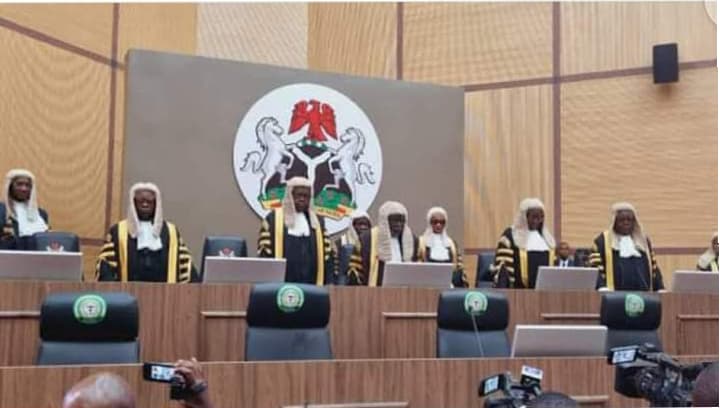NIGERIA’S Supreme Court has ordered that henceforth, federal allocations meant for the 774 local government council areas be paid directly to them.
In the lead judgment by Justice Emmanuel Agim, the apex court has also held that it is unconstitutional for State Governments to retain and use allocation meant for the LGAs on their behalf without transferring same to them as provided in Section 162(3) of the Constitution.
The Supreme Court made these pronouncements in its ongoing judgment in the suit filed by the Attorney-General of the Federation (AGF) and Minister of Justice, Prince Lateef Fagbemi, seeking full autonomy for the local government areas.
The apex court held that it is illegal and unconstitutional for governors to continue to receive and seize funds allocated to local government councils in their states.
It maintained that the “dubious practice” which has gone on for over two decades, was a clear violation of Section 162 of the 1999 Constitution (as amended).
Justice Agim further held that no House of Assembly of any state has the power to make laws that could, in any manner, interfere with monies meant for the local government areas.
Stressing that the law mandates that local government areas must be governed by democratically elected officials, the Supreme Court ordered that forthwith, funds meant for the local government councils must be directly paid to them from the federation account.
“Demands of justice require a progressive interpretation of the law. It is the position of this court that the federation can pay local government allocations to the local government areas directly or pay them through the states.
“In this case, since paying them through states has not worked, justice of this case demands that local government allocations from the federation account should henceforth be paid directly to the local government areas,” the apex court held.
It further declared unconstitutional the appointment of caretaker committees by governors to run the affairs of the local government areas.
It held that the 36 states are under obligation to ensure democratic governance at the third tier of government.
The judgment followed a suit the Federal Government filed to secure financial autonomy for the local government areas.
Earlier, the court dismissed preliminary objections the state governors filed to challenge the competence of the suit.
Eighteen-Eleven Media


